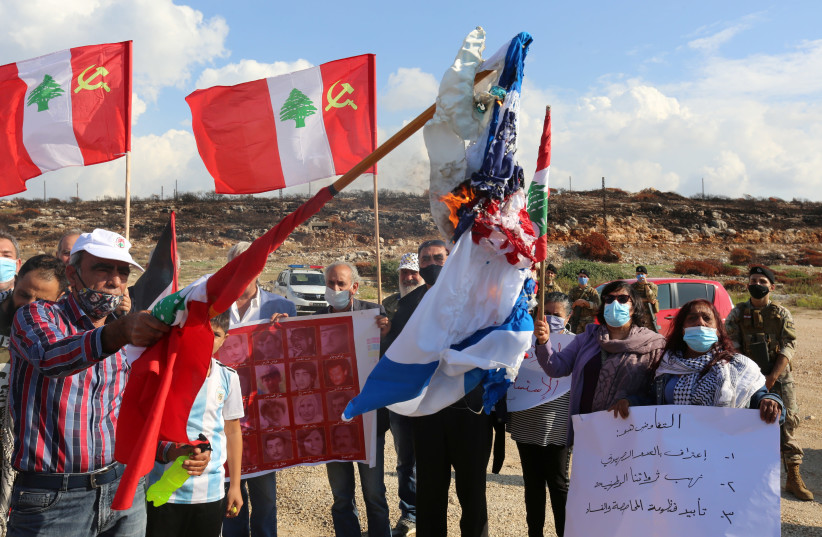The time has come for Israel and Lebanon to move toward an agreement on demarcating their maritime border, US Senior Advisor for Global Energy Security Amos Hochstein said on Wednesday.
“I think that after 10 years of these discussions, it’s time for moving on to a deal,” Hochstein told Lebanese news channel LBCI. “I came here in November, I was in Israel, and now we’re at a stage that I understand the parties’ positions and think we’re at the moment of narrowing those gaps toward a deal.”
Lebanon and Israel’s maritime border dispute has prevented exploration in an area that is potentially rich in natural gas, at a time when Lebanon is in an economic and energy crisis.
The countries both claim a triangular area of the Mediterranean Sea that starts at the countries’ land border, which is five to six km. (3.1-3.7 miles) wide on average and makes up about 2% of Israel’s economic waters.
Because the Lebanese government – which includes Hezbollah representatives – refused to talk directly with Israel, they began indirect negotiations at the UN Interim Force in Lebanon (UNIFIL) installation in Naqoura on the border, which the US mediated in late 2020. Hochstein, however, has preferred shuttle diplomacy.

After four rounds of the talks at Naqoura, Lebanon upped its demands, increasing the disputed area from 869 sq.km. to 2,300 sq.km, including Israel’s Karish North natural gas field, where drilling is already taking place. In response to the increased demands, Israel drew its own map, doubling its claim, but did not make use of it because Lebanon did not submit its new position to the UN.
In December, the Lebanese government issued tenders inviting international companies to compete for the right to drill in Israel’s maritime territory. The Israeli delegation to the UN sent a letter of complaint about attempts by Lebanon to take unilateral action in the areas in dispute.
Hochstein dismissed those actions as attempts to “increase their leverage... [to] give them better positioning in the negotiations. At some point you come to the table and you discuss what the actual dispute is about. Everybody in Lebanon and Israel knows the dispute... is from Line 1 to Line 23,” the 869 sq.km. triangle.
He said an agreement needs to address “both the boundary and the other strategic and national security needs of both countries,” and that the negotiation is about “reaching a settlement where neither side gets 100% of what they want.”
Despite disagreements within Lebanon about what to demand, Hochstein said he is “pretty optimistic. I hope, trust and am confident that there’ll be a unified position in Lebanon and in Israel and we’ll be able to move forward.”
Hochstein was in Israel two weeks ago and tweeted at the time that he had “good discussions with Energy Minister Karin Elharrar on US-Israel regional energy cooperation and pathways to accelerating energy transition.”
Hochstein was in Israel two weeks ago and tweeted then that he had “good discussions with Energy Minister Karin Elharrar on US-Israel regional energy cooperation and pathways to accelerating energy transition.”
